TOGETHER
With you, we make a difference
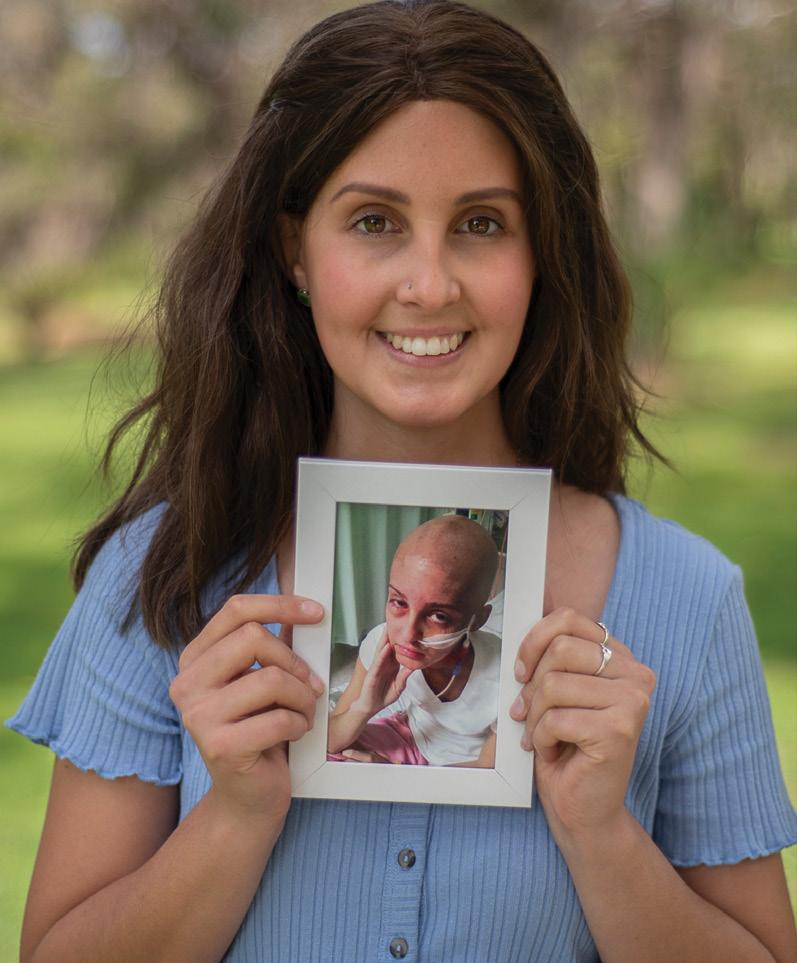
A journey of courage, determination and fighting spirit
Chloe’s story
In a year when ongoing uncertainty about COVID-19 again dominated the global landscape, we have been fortunate here in Western Australia – and at the Telethon Kids Institute – to continue operating with an almost unparalleled degree of freedom.
Research Future Fund, to determine whether immunity is boosted by ‘mixing’ vaccine booster types, how regularly Australians will need boosters, and whether the different dominant COVID-19 variants have the same reaction to vaccine boosters.
Not only have we largely been able to continue most of our research with minimal interruptions, but we’ve been able to use the extensive expertise concentrated at Telethon Kids to investigate, advise, advocate, and help others – including governments, families, Aboriginal communities and the broader community – make sense of the pandemic and its impact on our lives.
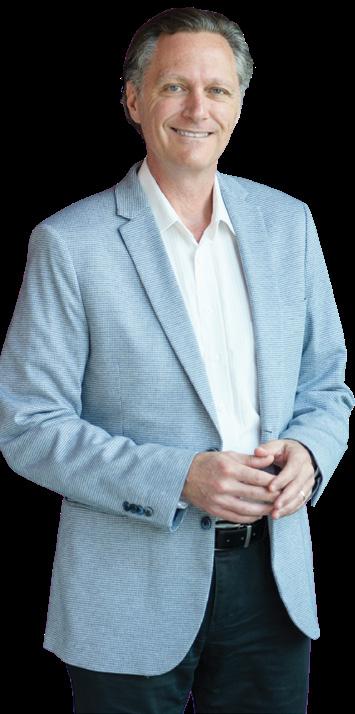
We continue to lead or collaborate on significant research projects centred around COVID-19, including the Coronavax study – a collaboration with The University of Western Australia – which is exploring vaccine hesitancy to understand community concerns and help inform State and Federal communication strategies around the vaccine rollout.
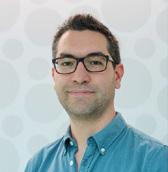
Professor Nick Golding, from the Geospatial Health and Development Team, has been heavily involved in the high-profile Doherty Institute modelling which has helped guide the Federal Government response to COVID.
On another front, Professor Peter Richmond – Head of the Vaccine Trials Group at the Wesfarmers Centre of Vaccines and Infectious Diseases – is the WA lead for the national COVALIA trial, which is investigating the safety and tolerability of a next-generation, needlefree COVID vaccine.
Professor Richmond will also lead a new, three-year, $4.1 million trial recently funded by the Federal Government’s Medical
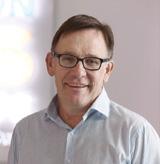
In addition, Telethon Kids Institute researchers have played prominent roles in key advisory groups helping to guide State and Federal decisions on critical public health issues such as vaccination policy, control measures, and decisions around reopening borders.
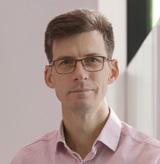
Most prominently, Associate Professor Chris Blyth – CoDirector of the Wesfarmers Centre of Vaccines and Infectious Diseases –has had a busy year in his additional role as Co-Chair of the independent Australian Technical Advisory Group on Immunisation (ATAGI), advising the Federal Minister for Health on national COVID-19 vaccine policy.
I remain an active member of the National COVID-19 Health and Research Advisory Committee (NCHRAC), while Associate Professor Asha Bowen – Program Head of Vaccines and Infectious Diseases – is the Paediatric and Child Health Division representative on the Royal Australasian College of Physicians COVID-19 Expert Reference Group and a recently appointed member of NCHRAC. She also co-chairs the COVID-19 National Living Evidence Guideline panel for child and adolescent care.
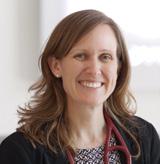
Importantly, Telethon Kids has become a trusted voice for many in the community –
a reliable source of evidence-based guidance to help families and the broader public sift through the mountain of information (and mis-information) surrounding COVID-19 and the vaccine rollout.
Our teams have also worked closely with Aboriginal communities and Culturally and Linguistically Diverse (CALD) communities to answer questions and share culturally appropriate, evidence-based information to help boost vaccine uptake in these vulnerable communities.
With the physical, social and emotional wellbeing of our children at the forefront of everything we do, naturally as the COVID focus has shifted to children we have stepped up this work even more – helping to advise governments on decisions around extending the vaccination rollout first to adolescents and then to children aged 5-11, and keeping families across what it means to them and their children.
We are incredibly fortunate to be in the position we are in Western Australia, but as we move towards learning to live with COVID-19 as part of our lives, our work at Telethon Kids Institute – the solid science, trusted information and passionate advocacy on which we pride ourselves –will continue.
None of this would be possible without the generosity and support we receive from our valued donors and partners and from the WA community. The health and happiness of children everywhere remains at the heart of why we all come together and do what we do – so I say to you: thank you.
 Professor Jonathan Carapetis AM Executive Director
Cover image: Chloe Clements
Professor Jonathan Carapetis AM Executive Director
Cover image: Chloe Clements
3
When passion meets purpose
Andrew first came across autism at an age where his main interests were “beers and girls”. He was 18 and studying speech pathology at university when the child of a family friend was diagnosed with autism.
To say 2021 has been a big year for Professor Andrew Whitehouse is putting it mildly.
In just the past few months alone, the Angela Wright Bennett Professor of Autism Research at Telethon Kids and The University of Western Australia celebrated a milestone birthday, was named the youngest-ever Fellow of the Australian Academy of Health and Medical Sciences (AAHMS), and had research published that attracted international headlines and debunked a common autism belief.
His essay, What causes autism? What we know, don’t know and suspect, was also selected among the top 50 most influential essays published by The Conversation over the past decade.
That’s a lot to pack into 40 years, let alone one year.
At his mum’s request, Andrew provided the family with some therapy, an experience he describes as “life altering”.
“The family had significant struggles obtaining appropriate supports,” he said. “Most of all, I remember the moments of extraordinary connection between the parents and the child, and that has driven much of my work.”
Born, bred, and clinically trained in Western Australia, Andrew spent the early part of his scientific career at Oxford University before returning to Perth to set up his research team at Telethon Kids in 2009.
Since 2018, Telethon Kids autism research has taken place at CliniKids in Subiaco, a centre of excellence that integrates worldclass research with a clinical service for children with developmental delay and/or autism spectrum disorder and their families.
Led by Andrew, CliniKids puts the research into practice, providing families with access to individually tailored, holistic supports and the best evidence-based therapies in the world.
“Our scientific goals are to transform how we provide support and care to the millions of children on the autism spectrum around the world,” the Eureka Prize winner said.
“But on the individual level, we want to show the world, and that child on the spectrum, just how wonderful we know them to be.”
Andrew is passionate about early intervention and the opportunity it gives children on the autism spectrum to reach their full potential.
Recently, an international research team that he led found the first evidence worldwide that a pre-emptive intervention (iBASIS-VIPP) during infancy could lead to such a significant improvement in children’s social development that they then fell below the threshold for a clinical diagnosis of autism at age three.
The study was published in the prestigious JAMA Pediatrics journal and attracted international headlines including the front page of The Telegraph in the United Kingdom, wire service Reuters in the United States, Canadian television, and all major print, online, TV and radio media outlets in Australia – an estimated audience reach of more than 1.3 billion people.
“Many therapies for autism try to replace developmental differences with more ‘typical’ behaviours,” Andrew said.
“In contrast, iBASIS-VIPP uses video-feedback to help parents understand and appreciate the unique abilities of their baby to create a social environment around the child that helps them learn in a way that is best for them.
“The children falling below the diagnostic threshold still had developmental difficulties, but by working with each child’s unique
differences, rather than trying to counter them, the therapy has effectively supported their development through the early childhood years.”
Andrew said the findings were a genuine landmark moment for child health research. In Australia alone, about 2 per cent of all children have an autism diagnosis.
“Autism is not typically diagnosed until three years of age, however, interventions commencing during the first two years of life, when the first signs of development difference are observed and the brain is rapidly developing, may lead to even greater impact on developmental outcomes in later childhood,” Andrew said.
“This is an important step forward in what we hope is an opportunity to develop new clinical models that use very early intervention in babies showing early behavioural signs of autism.”
Andrew’s advocacy efforts to date suggest that this could very soon become a reality.
He led the development of Australia’s first national guideline for autism diagnosis, and in his role as the Research Strategy Director at Autism CRC, led the most comprehensive review of the evidence for autism intervention ever compiled in Australia.
Based on this report, Andrew is currently working on a national practice guideline for paediatric autism therapies, a project funded by the Autism CRC.
“If implemented, this guideline will immeasurably improve how we provide clinical services to children on the autism spectrum in Australia,” he said.
Being inducted as a Fellow into the prestigious Australian Academy of Health and Medical Sciences (AAHMS) will hopefully help to drive policy change.
“There is something very special about being elected by your peers to an Academy of such high esteem,” he said.
“Recent research findings have transformed our understanding about autism, but the clinical implementation of this knowledge is still lagging.
“Translating these extraordinary research advances into genuine clinical impact is as hard as the research that underpins it, and I’m ready to roll up my sleeves.”
It must be extremely comforting for families with a child on the spectrum to know they have Andrew in their corner.
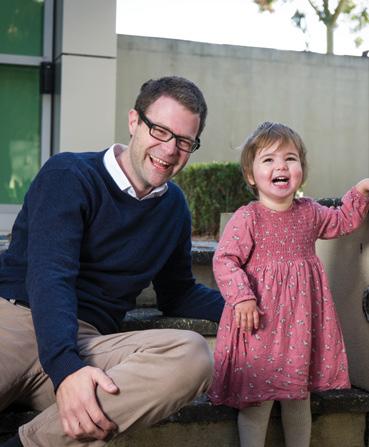
Flipping the gut microbiome-autism link on its head
Andrew hit the headlines again following the publication of research findings which challenged the commonly held belief that the gut microbiome (bacteria) causes autism. Rather, the study, published in the scientific journal Cell, found that individuals with autism had less diverse gut bacteria because they were more likely to be picky eaters.
The Australian collaborative Autism CRC study, led by Mater Research and The University of Queensland, included Telethon Kids Institute researchers.
Andrew said the findings provided clarity to an area that had been shrouded in mystery and controversy.
"Families are desperately seeking new ways to support their child’s development and wellbeing,” he said.
“Sometimes that strong desire can lead them to diet or biological therapies that have no basis in scientific evidence.
"The findings provide clear evidence that we need to help support families at mealtimes, rather than trying fad diets. This is a hugely important finding."
4
5
Professor Andrew Whitehouse with his daughter
Meet Alex Brown Professor of Indigenous Genomics DINNER
Alex is a proud Wodi Wodi/Yuin man from the south coast of New South Wales where he trained in medicine at the University of Newcastle, before working in hospitals on the central coast. He went on to complete a Master of Public Health in Israel before returning to Australia where he spent 14 years in Alice Springs – running the Centre of Disease Control before establishing research units for Menzies School of health Research and Baker IDI Heart and Diabetes Institute.
Over the last 20 years, Alex has established an extensive and unique research program focused on chronic disease in vulnerable communities, with a particular focus on outlining and overcoming health disparities.
His projects have included encompassing epidemiology, psychosocial determinants of chronic disease, mixed methods health services research in Aboriginal primary care and hospital settings, and randomised controlled trials of pharmacological and non-pharmacological chronic disease interventions.
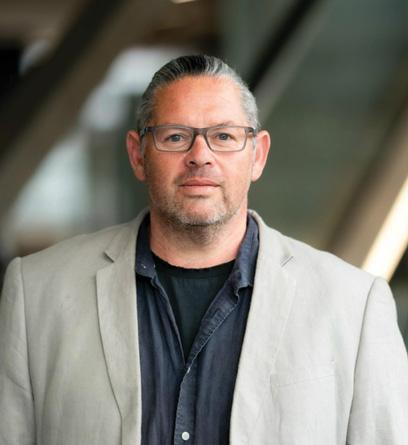
Professor Brown has held a number of hats with Telethon Kids, including as a Board member and as Scientific Director on our Journey Together project. We are delighted he is joining Telethon Kids Institute in the new capacity.
Internationally-acclaimed Aboriginal researcher and clinician Professor Alex Brown will be joining Telethon Kids in 2022 as the newly appointed, Professor of Indigenous Genomics.
The appointment forms a new strategic partnership between Telethon Kids Institute and the Australian National University (ANU) which will drive a common agenda for research excellence and delivering better health outcomes for Indigenous communities.
Based in South Australia, Professor Brown will also remain affiliated with the South Australian Health and Medical Research Institute (SAHMRI) where he led the Aboriginal Health Equity Theme from its inception in 2012.
Supported by a $5 million-dollar Synergy grant, Professor Brown’s work in genomics at Telethon
Kids will continue to lay the foundation for the future of Indigenous health.
Working in partnership with Aboriginal communities, this work will ensure genomic research is ethical, culturally, and socially appropriate, and deliver the benefits of genomics to Aboriginal children and families through enhanced and targeted delivery of health care.
There is no population in WA that suffers the long-term complications of early life conditions more than Aboriginal people.
Professor Brown said genomics remains a relatively new field of medical research –one which presents a one-in-a-generation opportunity.
“Australia is on the cusp of a new era in personalised medicine that will bring deeper insights into the architecture of rare diseases among children and common diseases like heart disease, diabetes and cancer,” Professor Brown said.
“Unfortunately, Indigenous Australians have been missing out on accessing the benefits of genomics and clinical care due to being excluded from national genomics efforts.”
Telethon Kids Institute Board Chair and ANU Chancellor, the Hon Julie Bishop, said the appointment reflected a joint commitment of both organisations, working with community to improve the health and wellbeing of Aboriginal and Torres Strait Islander people.
“His work has already had a significant impact in improving health care and services, and also in the way we conduct research in partnership with Indigenous communities to ensure the greatest relevance and results,” Ms Bishop said.
“The field of genomics unlocks the information in our DNA to enable personalised, more targeted approaches to preventions and treatments. Professor Brown’s work in this area will help to ensure that Aboriginal and Torres Strait Islander people are very much part of this exciting new frontier in medicine.”
We are very excited to welcome Professor Alex Brown as we work together to achieve our key goal of becoming a global leader in Indigenous child health research by 2023.
Aboriginal health is everyone’s business!
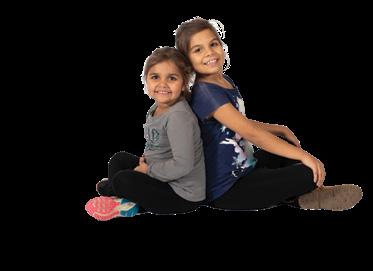
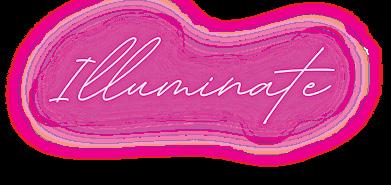
(DAN), a volunteer committee supporting the Institute’s fundraising goals, hosted the inaugural Illuminate Dinner, a fundraising event designed to shine light on the child health research happening at Telethon Kids Institute.
Through this event, the Illuminate Awards were born.
The Illuminate Awards recognises and rewards the Institute’s best and brightest researchers - with a minimum of $25,000 to spend on their research goals.
The recent evening was a huge success, with in-kind support from suppliers and the community as well as individual donations from our guests. Incredibly, we were able to establish four Illuminate Awards to provide salary security and discretionary research funding for WA’s best child health researchers at Telethon Kids.

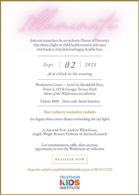

These awards support the next generation of researchers to expand on novel ideas, projects to answer unexpected questions and for Telethon Kids to continue working towards our vision of happy, healthy kids.
We look forward to announcing the successful recipients of the Awards in the New Year.










If you’re interested to find out how you can support our best and brightest researchers, please reach out to the friendly Telethon Kids Development team at giving@telethonkids.org.au
7 6
Terrific Telethon!
The record was broken once again this year at Telethon 2021 with an incredible result of more than $62.1 million raised to support children’s health.
Telethon Kids Institute is one of over 65 beneficiaries who receive funding from the weekend, to continue our dedicated research to benefit kids in Western Australia and around the world.
140 Telethon Kids researchers, staff and students volunteered over the weekend taking the opportunity to be part of the event that is, Telethon.
As part of the Telethon weekend, Sunday 17 October the annual Telethon Family Festival was held at Optus Stadium where over 1,000 kids visited the Telethon Kids Discovery Centre Dome, inspired by science.
For the first time in 2021, the Discovery Centre Dome hosted the Telethon Kids Science Challenge. Kids were required to don a mini lab coat and complete a range of science challenges - with the ultimate challenge to become a ‘Professor’ by completing four out of seven science activities.
Kids and families had great fun extracting DNA from strawberries, spotting an allergen using microscopes, using a pipette to draw different coloured water drops following a plate plan – recreating what researchers do in the lab and building a lung model using plastic cups and balloons.
As part of the series of activities, kids and families participated in the Real-Life Research Project, led by Renae Barr and Group A Strep (GAS) team from the Wesfarmers Centre of Vaccines and Infectious Diseases, who swabbed 40 children for Strep A.
The Telethon event and Family Festival continues to be an important outreach opportunity for the Telethon Kids Institute as we build awareness, raise funds and inspire the next generation of budding scientists and researchers.
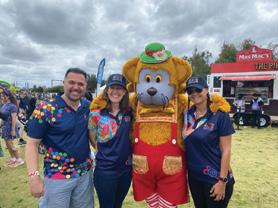
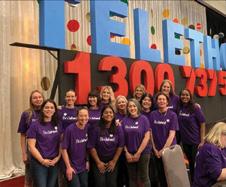
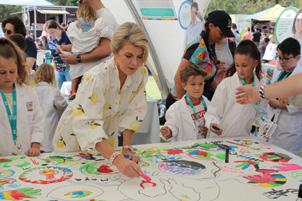
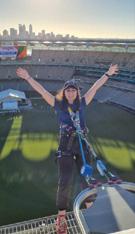
A night to remember Chloe’s story
“Your daughter has a brain tumor….” were the words Chloe Clements’ family heard in 2012.
At the young age of 13, Chloe was a bright, fit athlete – a competitive national gymnast and talented dancer but she was stopped in her tracks when a 5cm brain tumor was found at the base of her skull.

It was medulloblastoma, one of the most aggressive forms of childhood cancer. Undergoing delicate brain surgery and relentless rounds of chemo and radiation therapy, the harrowing treatment worked and Chloe has now been in remission for seven years… yet her battle doesn’t stop there.
Her journey of courage, determination and fighting spirit was shared at this year’s 2021 Telethon Ball.
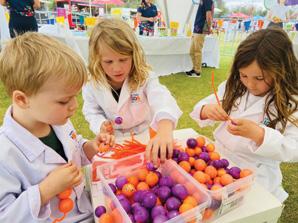
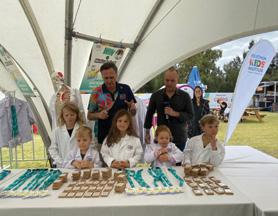
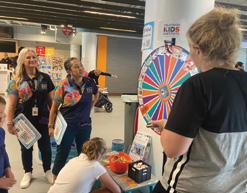
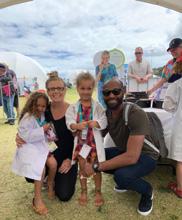
Now 22, Chloe bravely explained to the Telethon Ball guests that cancer treatment has claimed many other parts of her life including destroying her ability to produce eggs so she won’t be able to have a baby of her own, killing the hair follicles on her head so she wears a wig every day, reduced her ability to learn, process information and remember and significantly impacting her vision, hearing and balance.
Chloe now has the bone density of a 70 year old and had cataracts removed from both eyes. Like all other childhood cancer survivors, Chloe is very grateful to be alive despite the life implicating complications we often hear so little about.

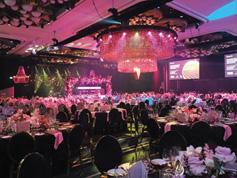
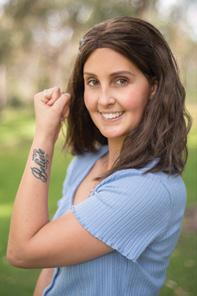
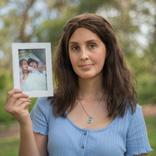
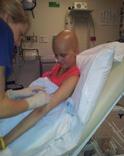
Sharing the stage with Chloe at the Telethon Ball was Co-Head of Brain Tumor Research Raelene Endersby.
Raelene and her team at the Telethon Kids Cancer Centre are taking part in international collaboration to develop desperately needed new treatments.
“The future of cancer therapy is all about tailoring therapy to suit the patient and the patient needs based on the type of cancer.
“If we can then match the personalised treatments to patients, we will significantly increase survival rates and quality of life after treatment.
$1.126 million was raised by guests at the Telethon Ball which will go towards supporting researchers like Raelene at Telethon Kids to revolutionise cancer immunotherapy for children.
We are expanding our world-leading laboratory models to develop and test immunotherapies specifically targeting children’s cancers, establishing an immunotherapy clinical trials unit with Child and Adolescent Health Service at Perth Children’s Hospital and recruiting the very best in the business – specialised expertise in immunotherapy research.
8 9 More information: Telethon Kids Cancer Centre Alecia Benzie, Head, Development T | 6319 1109 E | alecia.benzie@telethonkids.org.au
Dr Raelene Endersby on stage with Chloe
The toxic secrets of vaping
E-cigarettes are being touted as the safer alternative to smoking cigarettes, but are they?
That is the question the Wal-yan Respiratory Research Centre, a powerhouse partnership between Telethon Kids Institute, Perth Children’s Hospital Foundation and Perth Children’s Hospital, is trying to answer.
The body of work is being led by Associate Professor Alexander Larcombe, who is a researcher at Curtin University’s School of Population Health and Head of Respiratory Environmental Health at the Wal-yan Centre. In the past few years, he and his collaborators have published several papers highlighting the potential health effects of e-cigarettes and e-liquids.
Assoc Prof Larcombe has been with the Telethon Kids Institute for more than 15 years and in addition to his research on e-cigarettes has led many research projects, primarily investigating health effects of exposure to a range of environmental factors including allergens, respiratory viruses, pollutants and climate change.
His research has shown exposure to such factors in early life (including in the womb) can have significant impacts on lung growth and lung function, which can lead to life-long respiratory disease.
“As a father of two school-aged children, it’s important to me that we research e-cigarettes to better understand how we can protect the growing lungs of all children,” Assoc Prof Larcombe said.
“I want to understand what impact using e-cigarettes could have on lung health – especially in young people who are being exposed either first, second or third-hand,” Assoc Prof Larcombe said.
In a recent paper, Assoc Prof Larcombe and his collaborators Professor Ben Mullins from Curtin’s School of Population Health and Dr Sebastien Allard, from
Curtin’s School of Molecular and Life Sciences, found toxic and harmful chemicals in several dozen popular e-liquids readily available in Australia.
The study – funded by the Minderoo Foundation, Lung Foundation Australia and Cancer Council WA – is the most comprehensive Australian study of its kind. Researchers examined the ingredients of more than 60 of Australia’s more popular over the counter ‘nicotine free’ e-liquids and found most contained substances that are known to cause respiratory issues and lung damage when inhaled.
Assoc Prof Larcombe said none of the e-liquids tested were labelled with a comprehensive ingredient list, so it would be impossible for users to know what chemicals they were inhaling.
“The range of chemicals found in these e-liquids is concerning. Many of the flavouring ingredients we found are known toxins and irritants, which when inhaled can damage our airways and lungs,” he said.
With vaping and e-cigarettes becoming more popular with young people, Associate Professor Alexander Larcombe said it was important to understand the short and long-term effects of breathing in these harmful chemicals.
The team found 42 of the 65 e-liquids studied contained benzyl alcohol which is a solvent and flavour enhancer that had been known to cause severe skin and allergic reactions.
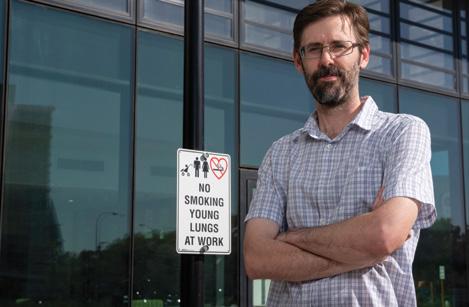
“Another alarming ingredient we found was benzaldehyde, used for its almond-like flavour, which was found in almost all of the e-liquids we tested – and in some at worrying levels,” Associate Professor Larcombe said.
“Benzaldehyde can increase exposure to nicotine and the concentration of nicotine in the blood. The chemical is known to be an irritant to people’s airways, and it also reduces the body’s ability to remove inhaled pathogens,” he said.
The research team also found many of the e-liquids tested contained other chemicals used for flavouring, such as menthol which enhances the addictive properties of nicotine and alters how nicotine metabolises; as well as transcinnamaldehyde (cinnamon flavour), which impairs people’s immune response.
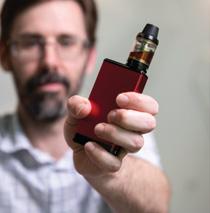
“Breathing in the cinnamon-flavouring chemical has been known to reduce the way your body responds to lung infections, which means your body’s chance to fight off infection is impaired,” Assoc Prof Larcombe said.
The Therapeutic Good Administration (TGA) has banned benzaldehyde and transcinnamaldehyde in Australian e-liquids.
This study built on previous results published in 2019 that examined 10 “nicotine-free” e-liquids, which found the majority did contain nicotine and some with relatively high levels. In the more recent study, the team found nicotine in six of the 65 e-liquids tested. In addition, they found nicotyrine (which is what nicotine turns into as it ages) in seven fresh (two of which also had nicotine) and nine aged e-liquids.
The Wal-yan Respiratory Research Centre and Assoc Prof Larcombe will use the findings of this body of work to raise awareness about e-cigarettes so people can make informed decisions and to inform government bodies, such as the TGA, on health policy related to e-liquids.
Assoc Prof Larcombe has plans to continue this work to learn more about what is in the e-liquids. In the previous studies the team looked at a
short list of likely ingredients, but he wants to go further and use a ‘discovery’ approach, which casts a wider net to see what other substances may be present.
“We also want to perform some more targeted toxicological studies on specific ingredients.
Most toxicological studies expose cells/animals to whole e-cigarette aerosol which is a super complex and variable mixture. Further, most e-liquid ingredients haven’t been tested for inhalation toxicity, so it would be valuable to thoroughly assess some of those.
The team is also doing research on heated tobacco products and the potential health effects from smoking them, thanks to an internal Wal-yan Centre grant scheme.
The Wal-yan Respiratory Research Centre is a global epicentre for pediatric respiratory research informing advancements in clinical practice, driving a new research agenda for childhood lung health. Bringing together clinicians, scientists and community members from around the globe, the Centre aims to prevent and cure respiratory illness in children and ensure that all children have healthy lungs for life.
The Centre has a 30-year legacy of globally competitive research from diverse groups of internationally acclaimed researchers in Western Australia, working in the area of paediatric respiratory research. A powerhouse partnership between the Telethon Kids Institute, Perth Children’s Hospital and the Perth Children’s Hospital Foundation ensures that the Centre will lead paediatric research in Australia and contribute significantly to global efforts to improve the lives of children with respiratory conditions and their families.
11 10
A Powerhouse Partnership
Taking away junk food ads
It is well established that junk food advertising is linked to kids’ food preferences, the types of food they pester parents to let them eat and their dietary intake and weight status. As we kickstart 2022 and prepare our kids for the new school year, research is currently underway to investigate the influence of junk food advertising.
A new rapid research funding model is translating into quick results, with findings informing a public health campaign that could banish much of the unhealthy advertising kids see on their school journey.
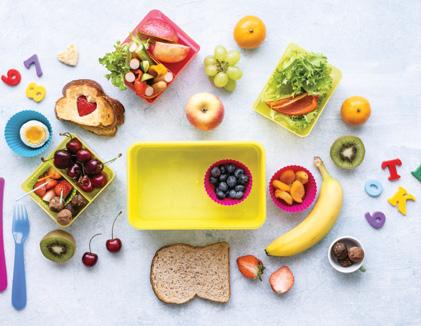
Population health researcher Dr Gina Trapp has joined forces with Cancer Council WA and Healthway to highlight the alarming number of junk food advertisements exposing school aged children to promotion of unhealthy choices.
Dr Trapp and a team of researchers mapped the advertising environment within a 500m radius of 64 randomly selected public and private primary, K–12 and secondary schools across Perth, covering high and low socioeconomic areas.

“It was shocking to see the amount of junk food advertising on government owned assets like buses, bus shelters, billboards, and also freestanding signs along the roadside, which governments have control over,” Dr Trapp said.
For healthy lunchbox ideas, visit livelighter. com.au/The-Facts/LiveLighter-for-Families
Good night, sleep tight
We all know that getting a good night’s sleep is important for our health, but for our most vulnerable population - it makes a world of difference.
Babies normally develop their circadian rhythm – also known as a body clock, during the third trimester of pregnancy, picking up sleep patterns while in the womb.
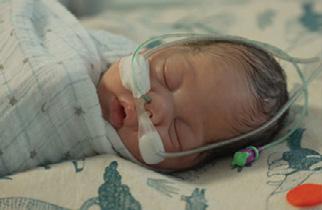
foods – and one in three of those unhealthy food ads were for alcohol.
The team also recreated bus, train and walking routes to 24 schools to calculate how many junk food ads kids might typically see on their way to and from school.
“If kids took the train to school, it worked out to be on average 37 junk food ads they were exposed to per one-way trip, compared to 2.4 healthy food ads,” Dr Trapp said.
“If you assume the amount and proportion of junk food ads stay constant, on average, Perth school children taking the train to and from school would be exposed to just under 15,000 junk food ads on their journey over the course of a year, compared to only 960 healthy food ads.”
Together with complementary studies from Curtin and Deakin universities – also backed by the Rapid Obesity Policy Translation program – Dr Trapp’s findings underpinned a joint statement by Telethon Kids, Cancer Council WA and other trusted health agencies calling on the WA Government to ban junk food and alcohol advertising on State-owned assets.
Cancer Council WA (through funding from Healthway in partnership with Telethon Kids) have funded the first stage of another Rapid Obesity Policy Translation project being led by Dr Trapp – one that will allow her to analyse the food buying habits of children from a northern suburbs high school before and after a major fast-food outlet is built directly across the road.
Approved despite the objections of public health advocates and school leadership, the outlet will be visible from classrooms.

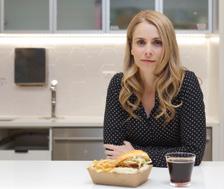
For premature babies, this fundamental rhythm isn’t given the opportunity to develop.
CIRCA DIEM, a national study led by Telethon Kids Institute and University of Western Australia preterm health researcher Professor Jane Pillow, will recruit 954 babies across neonatal intensive care units (NICUs) in Western Australia, Victoria, New South Wales, Queensland, and South Australia.
Focusing on very preterm (born at 28 - 31 weeks + 6 days’ gestation) and extremely preterm babies (less than 28 weeks’ gestation), half of the recruited babies will receive routine care while the other half will be fitted with eye masks and earplugs between 8pm and 6am – being exposed to a comfortable level of lighting and noise during the daytime, until they are discharged from hospital.
Baby Ante was born on the 29 May 2021, 25 weeks premature.
For first time parents Aedyn and Josip, the pair were very aware of the potential benefit for Ante to be involved in research trials, and the benefit that it might bring other babies in the future.
“When the CIRCA DIEM trial was proposed to me, I jumped at the opportunity as it sounded like such a lovely research study that made sense,” Aedyn said.
Ante spent 95 days in NICU at King Edward Memorial Hospital where he wore tiny ear plugs and an eye mask every night with a blanket over his incubator to kick start his body clock.
“Now that we are home, we have noticed a significant impact on how he sleeps – he’s adjusted to his new environment and as soon as the lights are out, he settles without much of a fuss,” Aedyn said.
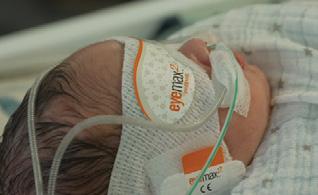
Professor Jane Pillow acknowledges that the study is much more than a good night’s sleepcircadian rhythms are linked to life-long health outcomes including organ development, and behaviour; and was associated with cardiovascular disease, obesity, metabolic syndrome, motor problems such as cerebral palsy, and neuropsychiatric conditions.
Professor Pillow said a pilot of the approach which commenced at King Edward Memorial Hospital in 2019, supported by a WA Child Research Fund grant, had seen babies develop a circadian rhythm within just three days.
“The big question is, will that early development of a circadian rhythm result in shorter stays in hospital?” she said.
“Will they get home sooner and will they have less severe disease? Or they may be in hospital just as long, because they have to grow and get to a certain maturity level before they can go home, but they may not have such severe lung disease, infections, or other problems.”
Thanks to new funding, the pilot can now move to a full trial and will commence recruitment in other states and some neonatal units overseas within the next few months.
13
12
Dr Gina Trapp
Professor Carol Bower was the first person in her family to attend university – a quiet but determined decision, made in the mid-1960s, that would go on to have profound implications for child health in Western Australia. No one – not even Carol –could have predicted the impact she would have over more than three decades with the Telethon Kids Institute.
Professor Carol Bower’s granddaughter recently asked her why she chose to become a scientist. The question stopped her in her tracks, and she realised she had never actively thought about this before.
“I always knew I wanted to help people, but I was torn between medicine and science,” she says.
Married to a busy clinician and with three young children, Carol admits she wanted a profession that would fit around her lifestyle as a mum, while also offering her a satisfying career.
As Carol contemplated her options, Fiona Stanley approached and recruited her to work with her team at The University of Western Australia, assisting with birth defects research – a topic which would drive Carol’s career for the next 40 years.
The two women quickly became a pioneering duo in the epidemiology field, setting up the WA Register of Developmental Anomalies and creating a series of research projects investigating what the data told them.
At the time, Australia had limited information on birth defects, making the register a cutting-edge solution that gave health professionals and other researchers an unprecedented database of information to learn from.
“Working in an isolated state like Western Australia was considered an epidemiologist’s dream in the 1980s – it was a self-contained environment - a desert on one side and the ocean on the other - with the advantages of excellent population data collections and just one major tertiary health care centre” Carol says.
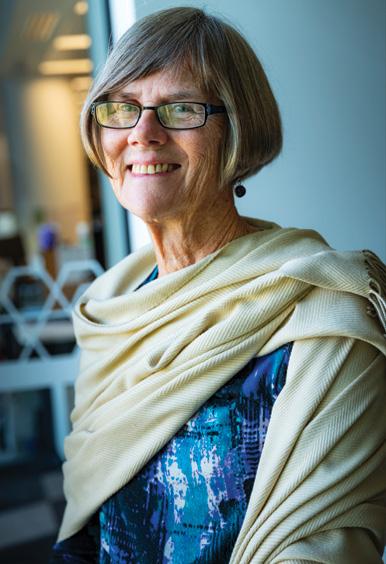
When the Institute formed in 1990, with Fiona Stanley as founding director and Lou Landau as founding chairman, research areas were broadening to include a holistic population approach, including Indigenous health – making Fiona and Carol ideally positioned to contribute their expertise and experience.
“When we all came together as the Telethon Kids Institute in 1990, we brought our own areas of research but soon found synergies by simply rubbing shoulders with other scientists,” Carol says.
“It was an exciting time for the Institute.”
The research for which Carol is perhaps best known started with a question: does folate protect against neural tube defects such as spina bifida or other related conditions?
Not only did Carol find a positive correlation but, together with Fiona, took those results and championed the case for folate’s ability to reduce the incidence of birth defects. The pair spearheaded education campaigns to encourage women to improve their intake through either folaterich foods or supplements, and, as a result, a 30% reduction in neural tube defects was documented, using the comprehensive data collected by the
WA Register of Developmental Anomalies. Importantly, however, the data also showed that the rate of neural tube defects did not fall for Aboriginal infants.
The real breakthrough, then, came in 2007 when Australian federal and state governments agreed to introduce the compulsory enrichment of bread-making flour with folate, demonstrating the value of public health measures to reach the whole population. Carol and Fiona’s research was instrumental in the decision, and they were later able to evaluate and demonstrate, through further research, the dramatic impact of the initiative on neural tube defect rates, particularly in Aboriginal children.
This had been a key driver for Carol: the need to ensure equal opportunities and improve social justice within research outcomes.
The ‘folate story’ to this day remains one of the proudest moments of Carol’s career – a research translation project she was able to witness in its entirety, from start to finish, including the way all the pieces fit together into an international jigsaw.
“Birth defects occur during pregnancy and result in lifelong conditions, so prevention really is key,” she says.
“It’s fantastic to see the rates of neural tube defects in Australia have fallen. Children who would have otherwise been born with spina bifida or other related conditions are now born free of these disabling conditions.”
Carol’s research – which in addition to establishing the first birth defects registry in Australia has included leading the ground-breaking Banksia Hill Project, uncovered alarming levels of neurodevelopmental impairment in young people in detention – has had a lasting impact on the health of many Australians.
She continues that commitment by always ensuring she consults and communicates her research to community groups affected by the work – work for which she has received multiple awards. A passionate advocate for the involvement of consumers in research, she was instrumental in establishing a number of community reference groups at the Institute.
“By being partners in our research, we hope consumers and the community see our research as important work and view our findings with trust and respect,” Carol says.
In 2019 Carol was inducted into the WA Science Hall of Fame in recognition of the profound impact she has had on the health of WA children over her 40-year-career with Telethon Kids Institute and The University of Western Australia.
In reflecting on that career, Carol says she has continued to learn and grow throughout.
“The whole thing has been an incredible journey and an immense source of pride.”
Celebrating CONNECT
At Telethon Kids Institute, we value our incredible community we have around us. From study participants to fundraisers, volunteers, and those who help shape and share our research, the Telethon Kids community plays a meaningful role in what we do, how we do it and what we achieve.
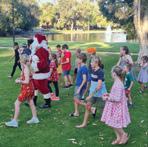
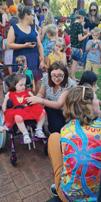
We call this community of ours ‘CONNECT’.
The CONNECT program honours the many ways our community supports us to make our research great and achieve our vision of happy healthy kids.
In recognition and celebration of the fantastic CONNECT members, we recently held an end of year event at King’s Park to say thanks and reflect on what has been an incredible year!
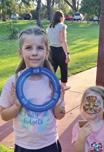
From the wonderful ‘Welcome to Country’ opening from Olman Walley to Freedom Fairy face painters, and games that kept families entertained, great fun was had by all.
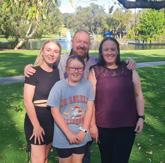
A huge thank you to all our families who connect with us, and we look forward to seeing CONNECT members soon in 2022!

14
To find out more about joining Telethon Kids CONNECT, visit our website telethonkids.org.au 15
Aboriginal researcher Dr Bep Uink is the inaugural recipient of the Tony Chong Award –an initiative born out of a hard-working immigrant’s desire to make a difference to some of Western Australia’s most vulnerable communities.
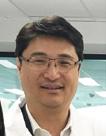
Born in Malaysia and from Chinese descent, Perth businessman Tony Chong had a multi-cultural upbringing.
Having decided in 1985 to move to Australia, his family – their sights firmly set on Sydney – landed in Perth for what was meant to be a brief stopover. They quickly fell in love with the West, however, and decided to take root.
Growing up in a family of lawyers, it was only natural Tony would find himself studying law and accounting at Murdoch University. After university, he went on to work in the corporate world for seven years, working on some of the biggest projects in Western Australia including the development of City Square (now Brookfield Place), the sale of Alkimos, the development of the Collie power plant, and many more.
Having tasted success himself, Tony decided he wanted to give back by supporting researchers who were dedicated to making a difference for minority groups. He was especially interested in work aimed at closing the gap for indigenous communities.
With this vision in mind, Tony approached Telethon Kids Institute this year, and the Tony Chong Award was born.
In May , Dr Bep Uink was announced as the inaugural recipient of the award in recognition of her ongoing research into Aboriginal and Torres Strait Islander LGBTQA+ youth mental health and the Impact of daily racism on Aboriginal and Torres Strait Islander youth.
A Noongar woman from Perth, Bep’s research focuses on understanding how socially determined disadvantage impacts on the social emotional wellbeing of young people, both Indigenous and non-Indigenous, and how social systems such as high school education can support young peoples’ wellbeing.
“Aboriginal and Torres Strait Islander youth (1425 years) who are also lesbian, gay, bisexual,
transgender, queer, asexual or other non-binary or non-heteronormative identities (LGBTQA+) face increased risk of suicide, homelessness, trauma and barriers to accessing health care,” Bep said.
“There is a desperate need to establish networks led by Elders and Aboriginal community-controlled organisations to support these young people.”
Tony said he was very proud to support Bep’s career - focused on improving mental health outcomes for Aboriginal youth.
“I know the research that Bep is doing will have a real impact on Aboriginal communities and change the lives of our young people for generations to come,” Tony said.
A skip, jump and a hop-scotch Congratulations Professor Juli Coffin!
This year, our community of Hopscotch donors gathered together throughout the year to explore three research topics: COVID-19 vaccines, the important role of Aboriginal researchers at Telethon Kids, and most recently a challenging and thought-provoking discussion on youth suicide prevention with Dr Bep Uink, Dr Nicole Hill, and Dr Penelope Strauss.
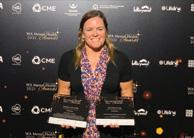
Program Head, Social & Emotional Wellbeing of Aboriginal Young People, Professor Juli Coffin has taken out top honors at the recent 2021 Western Australian Mental Health Awards.
Juli, who is an Embrace Advisory Group member and runs Yawardani Jan-ga – an equine-assisted learning (EAL) program adapted to provide trauma-informed, culturally secure, strengths-based support to Aboriginal children and young people – has won the Minister's Award for outstanding contribution.
The award recognises and rewards the achievements of someone who demonstrates excellence, innovation, and initiative in supporting carers and consumers of mental health or their community.
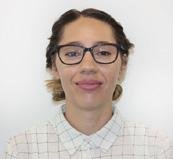
Hopscotchers are donors who give $500 or more to Telethon Kids annually. It’s always a highlight for us to welcome Hopscotchers into the Institute for vibrant discussions. This year we were delighted to include Peers & Partners membersTelethon Kids employees, who donate $500 or more annually to join as well.

The Tony Chong Award will continue to support Telethon Kids for the next four years, providing significant opportunities for early and midcareer researchers who are working to make a difference to some of our most vulnerable communities.
Tony Chong and his family, including two beautiful daughters, recently toured the Institute and met with Bep to learn more about her inspiring work.
Tony has also recently been announced as a member of the Telethon Kids Institute Development Advisory Network who provide a valuable conduit to potential donors. Members use their diverse networks to raise the Institute’s profile and expand our supporter community.
If you are interested in supporting a researcher, or would like to learn more, please contact Alecia Benzie, Head of Development on 6319 1109 or email alecia.benzie@telethonkids.org.au
These events provide intimate opportunities for our supporter community to meet incredible researchers and join the conversation with their questions answered by an incredibly talented panel.
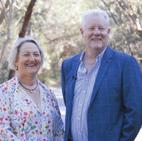
Brad and Marianne are proud Hopscotchers who giving unconditionally in support of healthy, happy kids around the world.
“Being part of something like this has connected us to a community, a community that I’m very happy to be part of,” Brad says.
You’re invited to join our Hopscotch community for 2022! To learn more or make a Hopscotch gift, visit giving.telethonkids.org. au or contact hopscotch@ telethonkids.org.au
Yawardani Jan-ga (means 'horses helping' in Yawuru language) is based in Broome with hubs in Derby and Halls Creek. The program is the first of its kind in the Kimberley, Australia and the world and was conceived by Professor Coffin as a way to address shocking rates of suicide among Aboriginal young people in Western Australia.
Designed and operated by Aboriginal people, for Aboriginal people, it is backed by community, the Telethon Kids Institute, Mineral Resources Australia, Healthway and the National Health & Medical Research Council. The Yawardani Jan-ga project won the Youth Focus Innovation for Change award which recognizes outstanding innovation driving change for better mental health.
Congratulations also go to parenting app Beacon – a cyber safety educational tool developed by Telethon Kids in partnership with Bankwest which was a finalist in the Innovation for Change category, and manager of the Friendly Schools program at Telethon Kids Institute, researcher, community leader and advocate Erin Erceg, who was a finalist for the Lifeline WA Prevention or Promotion Award.
Embrace @ Telethon Kids Institute is Western Australia’s first research collaboration devoted to the mental health of children and young people. To learn more about Embrace and
1 2 3 4 5 6 7 8 9 10 Investing in our brightest and best
current
health research projects,
our
embrace.telethonkids.org.au 17
youth mental
visit
website
16

Welcome Ed
Ed Bostock joined the Telethon Kids Board in 2021 and is a member of the Institute’s Development Committee. Ed is the Managing Director for Business Development at Wesfarmers Limited. Prior to joining Wesfarmers, Ed had a long career in private equity leading global and domestic investment firms Kohlberg, Kravis & Roberts and Pacific Equity Partners.
Ed brings a wealth of experience in investment, business development and corporate strategy across a broad range of industries.
Prof Tobi Kollmann - vaccine world expert
Professor Kollmann has been ranked as a world expert in vaccines by Expertscape. He’s in the top 0.1% of scholars on vaccinations over the past 10 years with just one other Australian ranked higher than Prof Kollmann in the world.
Prof Kollmann’s collaborators recently published that vaccine for tuberculosis also reduces the risk for stillbirth and preterm birth. In parallel, Prof Kollmann and his collaborator Dr Michell Giles (Monash U, Melbourne) have identified that immunisation with the standard influenza or pertussis vaccines during pregnancy cuts the risk for stillbirth and preterm birth by over 75% in Australian women. They since have secured funding from the Medical Research Future Fund (MRFF) to dissect how this works.
Congratulations Dr Jason Waithman
Dr Waithman has recently been named Cancer Council Western Australia’s 2021 Cancer Researcher of the Year.
Jason who heads the Institute’s Cancer Immunotherapy Group, received this prestigious award in recognition of his outstanding contribution to cancer research over the past three years. His contribution saw breakthrough research that could pave the way for improved cancer treatments - including part of a team that made a major cancer breakthrough in 2019, unlocking the mechanism used by the immune system to put cancer cells to sleep.
The findings, published in the journal Nature, could pave the way for improved cancer treatments by putting cancer into permanent dormancy. What an achievement.
An Aspiring Award
World’s most influential in their field


Professor Pete Gething and Professor Nick Golding have been named among the world’s most highly cited scientists.
At the Institute, their talents are helping to support fellow researchers, providing critical insights in areas including youth mental health, the built environment, and food access.
Peter and Nick appear in the latest edition of the Clarivate Analytics Highly Cited Researchers List which recognises global pioneers in their fields by the production of multiple highly-cited papers during the past decade.
Their names are drawn from publications that rank in the top 1% by citations for field and publication year in the Web of Science™ citation index.
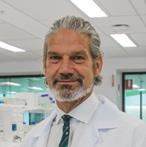
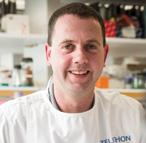
Business Events Perth’s Aspire Awards sponsor local academics, researchers and health professionals to attend a relevant international conference in their discipline, to further their professional development.
Dr Jessica Buck was announced the 2021 recipient of the $5,000 Telethon Kids Institute Aspire Award – coordinated by Business Events Perth and supported by the Perth Convention and Exhibition Centre.
With the funding, Dr Buck intends to travel to Germany where she will attend the 2022 International Symposium on Pediatric Neuro-Oncology in Hamburg – the premier international conference in childhood brain cancer.
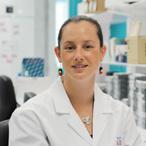
The methodology determines the ‘who’s who’ of influential researchers across 21 fields of the science and social science, with this year’s list identifying more than 6,600 researchers from more than 70 countries and regions.
Australia had 332 researchers on the list and was ranked fourth in the world for highly cited researchers.
Pete is the head of the Geospatial Health and Development Team at Telethon Kids and leads the Malaria Atlas Project (MAP), which uses cutting edge technology to provide the World Health Organization and individual countries in global malaria hotspots with comprehensive risk maps and other data to guide malaria control efforts.
Nick is an infectious diseases modeller and member of both the Geospatial Health and Development Team and MAP, where he is Director of Malaria Ecology. Over the past year he has been a member of Australia’s pandemic modelling team, working with others including the Doherty Institute to advise Federal and State governments on their response to COVID-19.
2022 WA Young Australian of the Year Nominee – Hayley Passmore
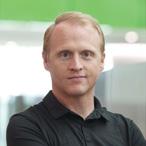
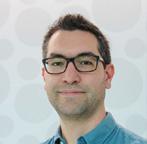
We recently celebrated with Hayley Passmore when she was honoured with the prestigious nomination for Western Australia’s 2022 Young Australian of the Year award.
Hayley was part of the Telethon Kids ground-breaking Banksia Hill Detention Centre Project, which identified the prevalence of neurodisability among young people in the justice system.
In response, she pioneered and delivered Reframe Training –an evidence-based intervention that helps the justice workforce better understand neurodisability and work with those affected by it.
More than 400 justice and community services employees have completed the training so far.
Reframe has also led to fundamental changes across WA’s youth justice system and sparked interest from local, national and international government departments.
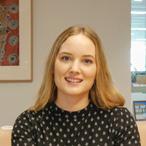
She has also secured funding to deliver the project to regional areas of WA, including the training of all police officers in the Kimberley region, and has been regularly training and presenting to state community organisations and service-providers across the state.
19 18
Shout outs!
Harvey Coates
Professor Harvey Coates AO is one of Telethon Kids Institute’s dearest friends. Joining the Telethon Kids Institute’s volunteer board back in 1993, Harvey was known as the ‘friendly surgeon’ while he served for 16 years. Also a member of the Fiona Stanley Circle, a group of forward-thinking people who have included a gift to Telethon Kids in their Will, Harvey continues to be a familiar face at Telethon Kids.
Born in New Zealand, Harvey’s interest in surgery and medicine was sparked through reading books during his high school years. As the first person in his extended family to go to university, he was further inspired and mentored by preeminent plastic surgeon Sir William Manchester, famed for treating WWII fighter pilots who suffered from burns.
Harvey and his wife Lyn moved to the USA for a few years where Harvey undertook a fellowship at the renowned Mayo Clinic. There he found his calling as an Ear Nose and Throat (ENT) surgeon while also seeing firsthand the valuable impact of people’s generosity through donations and fundraising.
“My time at Mayo Clinic was a very memorable chapter in our lives - we had our two children, I received a wonderful education which shaped my career, and experienced the positive impact of philanthropy.”
He, Lyn, and their young family returned to Australia where Harvey took the only ENT job available at the time which happened to be at Princess Margaret Hospital. It wasn’t long before he fell in love with looking after kids and the difference he could make.
“Kids get sick quickly, but they can get well quickly. You can make a change with whole life impact. ENT procedures like tonsillectomy or grommets can change their whole life trajectory.”
“In the early days was lucky enough to collaborate with Telethon Kids Institute Founder Fiona Stanley and Founder of the ear health team Deborah Lehmann to start lots of great work together.”
Harvey spent decades working in remote areas around Western Australia, including projects in Onslow, Roeburn, and Exmouth, often in Aboriginal communities.
“I’d meet children as young as three who would come into the clinic, not saying a word. You could barely get their name out of them because they had such significant hearing loss.
I’d treat them and then nine months later you see them and couldn’t get them to stop talkingthings like that are magic!”
One of his most exciting achievements was starting up the first large-scale newborn hearing screening in Australia, with the idea of identifying newborn hearing loss in the first days of life. Thanks to Harvey’s work, now nearly every Australian child has their hearing tested.
While he’s now technically retired, Harvey can’t stop himself from giving back. After spending more than 25 years working with the Derbarl Yerrigan Health Service (one of WA’s leading Aboriginal Medical Services), he continues his work but now it’s all pro bono.
In his spare time, he’s an avid traveler, loving family man, and art lover, especially Aboriginal art. The next time you visit the Telethon Kids Institute offices, take a look at the paintings on the walls. Many of them have been donated from Harvey’s collection of artworks he picked up on his travels over the years.
He continues to keep his finger on the pulse with research and is a familiar presence at Telethon Kids where he still regularly collaborates on ear health research.
What does he think about the next generation of ear health researchers at Telethon Kids?
“I love the team, they’re all brilliant!” says Harvey.
“The research being conducted at Telethon Kids will help all children, whether they’re Aboriginal, Torres Strait Islanders, non-Aboriginal, or even children throughout the world. We are making a difference to improve the lives of all children and that is why I continue to be involved.”
“I’m very happy upon my passing to give money to Telethon Kids Institute. I can easily see where the value is - children are our future. It can sound glib, but it’s true.”
Reflecting on his life and career, Harvey smiles, “It’s been a wonderful journey.”
Rio Tinto Diabetes Research Centre A JDRF Global Centre of Excellence
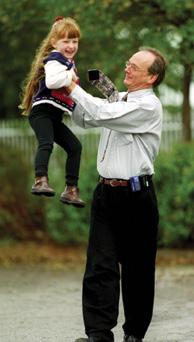
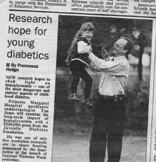
April
Welsh was diagnosed with Type 1 Diabetes at the age of three when her Mum Leeann picked up on signs at home.
“It was as if she had lost her spark and had gone from being an active toddler to being very lethargic, drinking excessive amounts of water and still wetting the bed at night,” Leeann said.
After spending years on multiple injections and checking blood glucose levels multiple times a day, her family advocated for April to become the youngest patient in Western Australia to start on an Insulin Pump at the age of six.
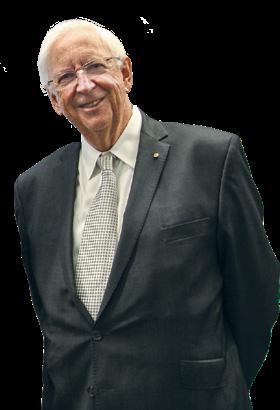
the only one in the Southern Hemisphere and the only paediatric focussed research - as a collaboration between Telethon Kids Institute and Perth Children’s Hospital.
Co-Head, Diabetes and Obesity Research Team, Professor Tim Jones said the research centre will allow for our dedicated diabetes researchers to proudly continue their work here in Western Australia.
“We have always been on the world stage as a leading institute for diabetes research and clinical investigation.
“This partnership with Rio Tinto, through Telethon, and JDRF is a game changer and means we can continue to be innovative in the way we manage diabetes, assist our families with improvements in routine care and provide opportunities for our kids to trial the very best in new diabetes technologies,” Professor Jones said.
Almost 25 years later, April’s experience and collaborative approach to diabetes management through innovation, advances in technology and participation in research trials, has set her up for a happy, healthy life as a young adult.
In an exciting announcement and thanks to the generous support of Rio Tinto, Telethon Kids Institute has partnered with the Juvenile Diabetes Research Centre (JDRF) to form a global centre of excellence. The Rio Tinto Diabetes Research Centre will bring research, education, clinical care and hope together, showcasing the best and brightest diabetes research on a global stage.
JDRF is the leading supporter of type 1 diabetes research in the world, stiving to create a world without Type 1 Diabetes. JDRF will create five Global Centres over the next two years - two formalised already (Boston and California) and two (US and Europe) in the process. This one is
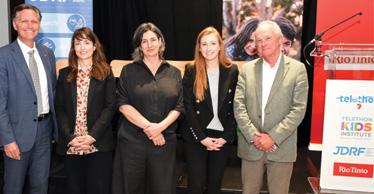
Featuring in a newspaper article in 1998, Professor Jones diagnosed April at the young age of three and supported her family as together they became trailblazers in adopting new technology – Insulin Pumps which at the time were only available in the UK and US.
There is hope The Rio Tinto Diabetes Research Centre will allow similar opportunities for thousands of other Australian families living with Type 1 Diabetes.
The existing Children’s Diabetes Centre at Telethon Kids was established in 2015 as an integrated clinical and research centre conducting research into Type 1 Diabetes (T1DM) and childhood onset Type 2 Diabetes.
20 LOCAL LEGEND
21

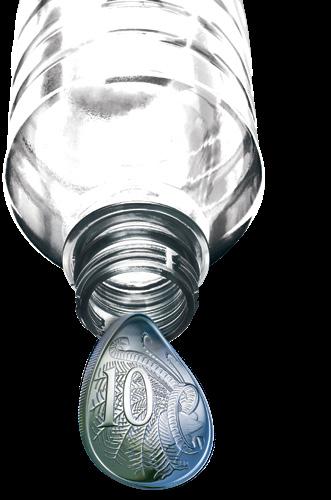

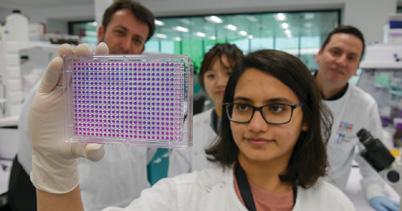
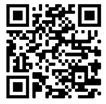
23 DONATE THE CASH THAT’S IN YOUR CONTAINERS TO
Brought to you by: Apple and App Store are trademarks of Apple Inc., registered in U.S. and other countries. Google Play and the Google Play logo are trademarks of Google LLC. ™ 22 Telethon Kids Institute and Bankwest are proud to deliver Beacon - a cyber safety educational app designed to keep parents and carers up to date with trusted, tailored information, to help keep their kids safe online STEP 1: Choose your gift All gifts $2 or more are tax deductible. Please accept my annual monthly single donation of: $30 $50 $100 $250 $500 My choice $ I wish for my donation to be: unconditional, to where it is most needed directed to a specific research area: STEP 2: Choose how you wish to donate A cheque is enclosed made payable to: Telethon Kids Institute OR debit my Mastercard Visa Amex Card number: / / / Expiry date: / Name on card: CVV: Signature: I have included a gift to Telethon Kids Institute in my Will. I am considering making a gift in my Will and would like more information. STEP 3: Fill in your details Name: Address: Phone: Email: I would like my gift recognised publicly as: STEP 4: Send in your donation Post this form to PO Box 855, West Perth WA 6872 OR Contact us on 08 6319 1333 or giving@telethonkids.org.au Thank you for making our work possible We value and respect your privacy. To see our full Privacy Policy please visit www.telethonkids.org.au/legal/privacy To modify your contact preferences, please contact 08 6319 1333. Prefer to give online? Visit giving.telethonkids.org.au/donate or scan this QR code Donate now and give kids the gift of happiness and health.
TELETHON KIDS INSTITUTE
Northern Entrance, Perth Children’s Hospital, 15 Hospital Avenue, Nedlands WA 6009 PO Box 855, West Perth Western Australia 6872
T | 08 6319 1000
E | contact@telethonkids.org.au
W | telethonkids.org.au
PRINCIPAL PARTNER






 Professor Jonathan Carapetis AM Executive Director
Cover image: Chloe Clements
Professor Jonathan Carapetis AM Executive Director
Cover image: Chloe Clements


































































